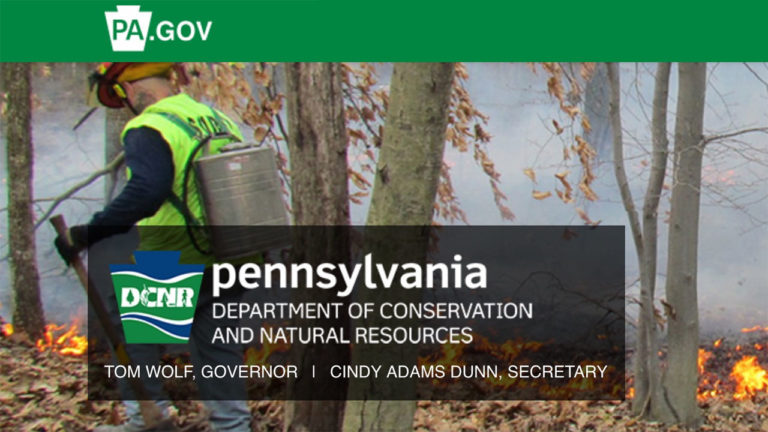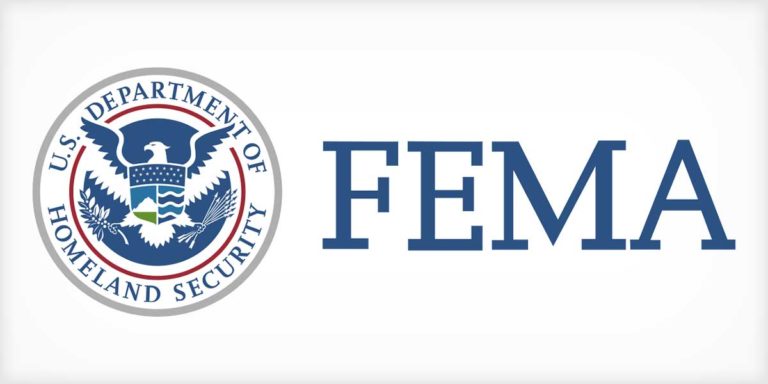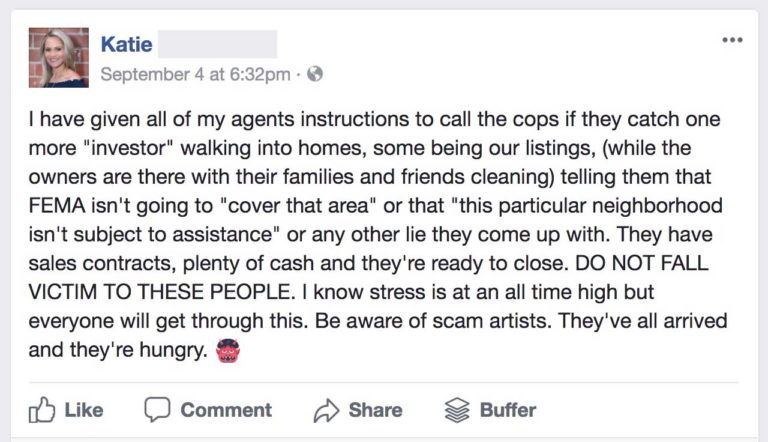In light of Harvey and Irma—and now maybe José and Katia behind them, I wanted to take a minute to share some emergency preparedness information for Chester Springs residents.
What if that were us? What could we do? Many in the Chester County area remember Hurricane Sandy like it was yesterday. In major hurricane terms, it practically was yesterday. And many of learned lessons about flooding, wind damage, and other threats. But it’s still worth discussing some reminders.
When do most natural disasters happen in Chester Springs?
Let’s start with the basics: when disaster is most likely to strike? Here’s a breakdown of seasons and patterns.
Hurricanes in Chester Springs
Atlantic hurricane season is officially June 1 through November 30. November! That means that even as temperatures drop below freezing and Thanksgiving comes and goes, Chester Springs could—could—still get hit with a hurricane. That was a huge surprise to me.
Going back all the way to 1876, the Wikipedia info says Pennsylvania has seen “tropical cyclones” (some were too small to be considered hurricanes) in the following months:
- 6 – June
- 10 – August
- 19 – September
- 8 – October
- 1 – November
So clearly late summer/early fall is the most likely time. In a century and a half of tracking, only 6 out of 44 storms occurred before August. That means 86% of the time, they’re late summer or fall.
On the other hand, while we’re running stats & numbers, 44 storms in 141 years means we get a storm every 3.2 years on average.
Wildfires in Chester Springs (if ever)
Pennsylvania actually has 2 wildfire seasons, according to the PA Dept. of Conservation & Natural Resources: March-May and then again in Oct-Nov. (Double whammy in November, huh?)

But going back to Wikipedia, there are zero wildfires listed in PA history. That probably means the fires that have caused damage in the past weren’t technically wildfires. But that’s still good news.
Earthquakes in Chester Springs
Earthquakes have no season—they strike whenever they feel like it. PA had a 5.2 quake back in 1998 (coincidentally, also in September!). And tiny quakes happen all the time, but they’re too small to do damage or even be noticed by most people.
What does that mean for Chester Springs residents?
In our corner of PA, natural disaster preparedness isn’t usually considered crucial. But for those who do prep, stocking food and water only takes care of your immediate needs.
What happens if your roof is blown off, your walls collapse, or your home is destroyed? Even the most thorough retrofitting won’t stop Mother Nature.
My goodness, that’s so scary. My heart goes out to everyone impacted by Hurricanes Harvey and Irma.
I’m sure that once everyone is safe and their immediate health and wellbeing needs are met, many residents of Texas, Louisiana, and Florida will have to address the safety and livability of their homes.
So, today I thought we should look at some preliminary steps to take, for the next time—not if but when!—southeast PA goes through what our southern neighbors have endured.
Safety first! Relocating is always a safe bet.
Don’t stay home or go back into if you have any doubts about the soundness of your home. The American Red Cross and Salvation Army typically provide shelters during disasters.
You can find shelters by texting “SHELTER” and your ZIP code, (so “SHELTER 19335”, for example) to FEMA’s text message hotline at 43362 (4FEMA).
The Recovery Process
When it’s safe, here are some steps to begin the recovery process:
Mortgage
- Get in touch with your mortgage servicer to request a forbearance on your mortgage payments.
- Document the home’s damage, how your job may be impacted by the disaster (and, thus, your income) and anything else that may hamper your ability to make your payments.
Insurance
- As soon as possible, document the damage to your home and belongings (photographs are ideal) and secure the home if you cannot remain there safely. Your insurance company will want to know the extent of the damage and be assured that you’ve secured the home from further damage by weather, looters and squatters.
- Keep all receipts for any disaster-related expenses, including hotel rooms, food, clothing and supplies purchased to board up the home’s windows or patch holes in the roof (anything purchased in your efforts to secure the home).
- Contact your homeowner insurance agent and flood insurer. It’s important to get the ball rolling on this as soon as possible. Ask your insurance agent if you have coverage for alternative living expenses during the time you’ll be unable to return to your home. Then, get the specific steps you’ll need to take before repairs can begin.
FEMA assistance
Even if you don’t have flood insurance, you may still be eligible for assistance. Get the details at disasterassistance.gov.

Whether or not you can obtain federal disaster assistance depends upon if Chester County is declared an official disaster area. If it is, apply for disaster assistance, even if you have insurance.
FEMA’s Disaster Recovery Assistance program offers grants for some home repairs, rent payment assistance, and other disaster-related necessities. You can apply online here.
Don’t wait to apply for assistance – if you do, you run the risk of missing FEMA’s deadline to apply.
Scammers will be out in full force
Authorities with FEMA warn that phony contractors, housing inspectors, and those hawking offers of government aid will be circling the area like vultures.

Always ask for official identification and never entertain anyone who asks for money.
“There is no fee to apply for or to get help from FEMA, the Small Business Administration, or the state,” they warn.
Report suspicious scammers to FEMA at 866-720-5721 or by contacting the PA attorney general’s office.
While the hurricanes’ floods are top-of-mind right now, disasters of many stripes can occur across the country. Keep this information handy as it applies to earthquake, wildfire, and other disaster victims as well.

